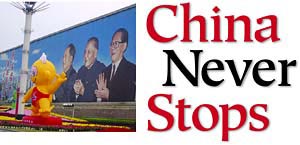|
[ Home ] [ About Us ] [ President's Corner ] [ Endorsment-Support ] [ Founding Members ] [ Management Team ] [ Collaboration Ptrs ] [ Members' Page ] [ Members' News ] [ Membership Info ] [ New Members ] [ Events Listing ] [ Speakers' Notes ] [ Trade Issues ] [ Technology ] [ Resource Center ] [ HK & China Biz ] [ Photo Album ] [ News Releases ] [ Reading Room ] [ Business Links ] [ Acknowledgement ] [ Alerts ] [ Job Opportunities ] [ Contact Us ] [ Site Map ]
Newsletter
Seminar Material
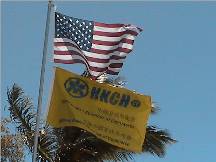



Biz:
China
Hong
Kong Hawaii


What people
said about us

China
Earthquake Relief
Tax &
Government
Hawaii Voter Registration
 Biz-Video
Biz-Video
 Hawaii's
China Connection Hawaii's
China Connection

 CDP#1780962
CDP#1780962

 Doing Business in
Hong Kong & China
Doing Business in
Hong Kong & China
| |
Trade Issues




Do you know our dues
paying members attend events sponsored by our collaboration partners worldwide
at their membership rates - go to our event page to find out more!
After
attended a China/Hong Kong Business/Trade Seminar in Hawaii...still unsure what
to do next, contact us, our Officers, Directors and Founding Members are
actively engaged in China/Hong Kong/Asia trade - we can help!
Are you ready to export your product or
service? You will find out in 3 minutes with resources to help you -
enter
to give it a try
A Turbulent Year Ahead in 2004
for China-US Trade Relations?
Special
Report - China Northeast updated on Oct 14, 2004
 EDITORIAL:
"Diplomacy a must for Taiwan mission"
-
Business people must keep their eyes open
EDITORIAL:
"Diplomacy a must for Taiwan mission"
-
Business people must keep their eyes open


 Detail Info
Detail Info
 Download Skype - FREE
Voice Over IP Download Skype - FREE
Voice Over IP  April 2006
China
Projects Bidding Information - update daily
April 2006
China
Projects Bidding Information - update daily
Old Trade
Issues Page BEFORE July 8, 04
July 9 - Dec
31, 04
Jan 1 - Mar 31, 05
Apr 1 - Dec
31, 05
 |
Hawaii Ethic Commission
- To preserve public
confidence in government by administering and enforcing State of Hawaii
governmental ethics laws to ensure the highest standards of ethical conduct
among state officials and employees.
Daniel J Mollway,
Executive Director, Hawaii State Ethics Commission,
Pacific Tower, Suite 970,
1001 Bishop Street, Honolulu, Hawaii 96813, USA, Phone: (808) 587-0460, Fax:
(808) 587-0470, Email:
dmollway@hawaiiethics.org |
 |
The ICAC
(Independent Commission Against Corruption)
of Hong Kong and 13 professional
organizations/chambers of commerce have collaborated to produce the captioned
Guide. It is tailor-made for managers who are not trained IT experts but who
have to supervise their teams in the use of computers and the Internet. The
Guide offers managers practical advice on how to identify integrity risks in the
workplace and proactively reduce them by ethical management. Free copies are now
available for collection by business organizations. Contents of the Guide include:
Case illustrations from the ICAC's investigation files / An analytical
framework for addressing corruption from the legal and ethical perspectives / An
ethical management model and some practical measures / A directory of services provided by publishers, particularly the ICAC....Click here to read the Guide |
 |
Listen to MP3 Hawaii
Public Radio “Business
Beyond the Reef” to discuss the problems with imports from China, telling
all sides of the story and then expand the discussion to revitalizing
Chinatown -
Special Guest:
Johnson Choi, MBA, RFC. President - Hong Kong.China.Hawaii Chamber of
Commerce (HKCHcc) and Danny Au, Manager, Bo Wah Trading |
China Legal
Issues 
 China Central TV - English
Channel 24 hours live webcast
China Central TV - English
Channel 24 hours live webcast
成功之道
武进制造 Wujin - Changzhou - Jiangsu Province - China http://www.hkchcc.org/wujin.htm
 China President Hu Jintao USA State Visit
January 19 - 21 2011 http://www.b2bchinadirect.com/hujintaousavisit.htm China President Hu Jintao USA State Visit
January 19 - 21 2011 http://www.b2bchinadirect.com/hujintaousavisit.htm
 USCBC Special Report: Hu Jintao State
Visit USCBC Special Report: Hu Jintao State
Visit
 U.S.
Free Trade Agreements U.S.
Free Trade Agreements
January
27 2011
US will lose business if
export controls remain in place By Ding Qingfen
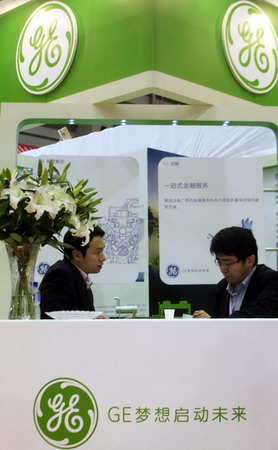
The
United States will probably allow huge business opportunities to go to European
Union (EU) countries and Japan if it refuses to rescind controls on exports to
China as soon as possible, according to Chinese government officials. The
comments came at a monthly forum on China-US Economic Relations held by the
China Center for International Economic Exchanges (CCIEE) - a high-level
business thinktank - on Wednesday.
Wei Jianguo, a former vice-minister of commerce, and now secretary-general of
the CCIEE, urged the US to quickly reduce restrictions on high-tech exports to
China in a bid to narrow the trade surplus, an issue that has become central to
bilateral trade conflicts.
"The sooner the US does it (loosens the restrictions), the more leverage it
will gain in the future and the more commercial benefits it will gain otherwise,
the business opportunities (in terms of high-volume Chinese imports of high-tech
products) will naturally slip away to other nations, including those in the EU
and Japan," said Wei.
During the 3rd China-EU High-Level Economic and Trade Dialogue held in Beijing
in December, the EU agreed to set up a working panel to examine boosting
high-tech sales to China.
A meeting on the issue is expected to be held early this year, after the two
sides reached a consensus on increasing cooperation on high-tech trade.
China has a large trade surplus with the US, which the US attributes to the yuan
being undervalued.
China denies this, and says that the best way to promote Chinese imports is for
the US to abandon its restrictions on high-tech exports.
The export of high-tech products to China, for both military and civilian use,
has long been forbidden by the US despite repeated calls for change. During
President Hu Jintao's four-day visit to Washington last week, China again made a
proposal on the issue during the bilateral high-level meeting.
Although China signed a series of agreements on purchasing US goods worth as
much as $45 billion, no progress was made on the issues of export controls.
"China and the US have been cooperating well, but US export controls are a
big problem in bilateral economic relations," said Sun Zhenyu, the former
Chinese ambassador to the World Trade Organization, at the forum.
"US exports to China would easily increase if such a restriction did not
exist."
Some US companies have also agreed with that statment.
"The US government has to look at reducing controls, because erecting
barriers cannot be the answer to US need to create jobs and prosperous
growth," said Mark Norbom, president of General Electric China.
GE, the largest US industrial company by market value, announced a number of
deals with Chinese groups last week that will create about 4,500 jobs in the US,
including the formal signing of a joint venture agreement with the Aviation
Industry Corporation of China to set up a 50-50 joint venture to provide
avionics for the new Chinese C919 airliner.
January
29 2009
Buy
America Program may destroy USA and Asia trade and business
The
Honorable Daniel K. Inouye
United States Senate
722 Hart Senate Office Building
Washington, D.C. 20510-1102
The Honorable Daniel K. Akaka
United States Senate
141 Hart Senate Office Building
Washington, D.C. 20510-1102
Dear Senator Inouye and Senator Akaka:
You face an awesome responsibility as the Senate grapples with the stimulus
package. That responsibility includes ensuring that Hawaii gets the maximum
“bang for the buck” from projects to be financed and ensuring that Hawaii
and the country are not engulfed by a downward spiral likely to be triggered by
“Buy America” provisions that were inserted in the House version of the
package.
I write to you as vice-chair of the Hawaii Pacific Export Council, a volunteer
committee of business leaders in Hawaii, who are appointed by the U.S. Secretary
of Commerce to provide their expertise to assist our Hawaii companies, mostly
small businesses, to export their good as services overseas, thereby helping
Hawaii's economy. Hawaii’s market is simply too small for many companies to
thrive in these times, and we see more and more Hawaii companies trying to
generate overseas sales to tide themselves over.
The stimulus package passed by the House of Representatives contains provisions
calculated to prompt extreme reactions from the trading partners on which Hawaii
depends. These include requirements that the steel and cement to be used on
infrastructure projects financed by the package must be of U.S.-origin. This may
sound attractive on the surface, but the provisions are fraught with unintended
consequences. Perhaps intended to save U.S. jobs in the steel and cement
industries, this will be done at the price of losing even more American jobs in
the construction industries by raising the price of their inputs and creating
supply bottlenecks that will slow down the hoped-for recovery. You can imagine
how quickly Hawaii will get steel from the Mainland if the entire country is
competing for American steel only.
Hawaii’s exports are likely to be disrupted as well. The European Union is
already moving to prosecute the United States in the World Trade Organization
should the Buy America provisions become law. France is already considering a
Buy French policy to exclude our products. Our major markets in Asia are bound
to take action to protect themselves - in a replay of the world’s reaction
when the Smoot-Hawley Tariff was passed, exacerbating the Great Depression. Make
Hawaii a leader in helping the world recover from this recession by voting
against the Buy American provisions. Don’t let us lead the way to a downward
spiral.
A copy of a letter is attached that has been sent to Senators Reid and
McConnell, and to Representatives Pelosi and Boehner. The Hong Kong.China.Hawaii
Chamber of Commerce (HKCHcc) strongly endorses this letter.
Sincerely,
Johnson W. K. Choi
President
Hong Kong.China.Hawaii Chamber of Commerce
January 22, 2009
The Honorable Nancy Pelosi
The Honorable Harry Reid
Speaker Majority
Leader
U.S. House of Representatives
U.S. Senate
H-232, U.S. Capitol
S-221, U.S. Capitol
Washington, D.C. 20515
Washington, D.C. 20510
The Honorable John Boehner
The Honorable Mitch McConnell
Republican Leader
Republican Leader
U.S. House of Representatives
U.S. Senate
H-204, U.S. Capitol
S-230, U.S. Capitol
Washington, D.C. 20515
Washington, D.C. 20510
Dear Speaker Pelosi and Leaders Reid, Boehner, and McConnell:
The challenges facing the United States economy are far reaching, and we support
the Administration’s and Congress’ efforts to create an economic stimulus
package that will help American workers and companies to face them. One issue
that we urge you to bear in mind as you prepare this legislation is the vitally
important role that international markets play in sustaining U.S. jobs today and
the role they will play in economic recovery. Without sales abroad and access to
inputs, many U.S. workers would be out of a job. As a consequence, the
undersigned associations, representing every major U.S. business sector, urge
you to ensure that the economic stimulus package does not include
trade-restrictive provisions – including counterproductive expansions of Buy
American-type mandates – that would undermine the ability of American
companies and workers to export goods and services made in the United States and
thereby undercut the goals of this package.
U.S. law already imposes significant Buy American mandates on products purchased
by the Federal government, as well as additional mandates for federally funded
highway projects. These provisions generally require the use of American
products except in specifically defined circumstances. As a result, there is no
need to expand these provisions or create new ones.
Moreover, proposals to expand Buy American restrictions would have several major
adverse consequences for the United States, U.S. industry and U.S. workers. In
particular, the inclusion of such restrictive provisions in the economic
stimulus legislation would:
Undermine America’s leadership in the global response to the worldwide
financial crisis by turning our backs on the November 15, 2008 G-20 Joint
Declaration commitment that “within the next 12 months, we will refrain from
raising new barriers to investment or to trade in goods and services, imposing
new export restrictions, or implementing World Trade Organization (WTO)
inconsistent measures to stimulate exports.” We believe that any expansion of
Buy American-type provisions in the economic stimulus legislation would be
counter to that commitment and American leadership thus far.
Shut U.S. companies and their workers out of the economic stimulus programs
being initiated around the world. Inclusion of new trade-restrictive proposals
would send precisely the wrong signal to governments around the world that are
undertaking their own economic stimulus programs. The list of countries moving
forward with their own economic recovery programs – many of whom are major
markets for American goods and services – is growing. Already, China, Germany,
Great Britain, France, Australia, India and other countries have initiated or
are preparing to initiate major new infrastructure and other stimulus projects.
If the United States further restricts access to our market, these other
countries will certainly follow our lead, shutting U.S. exporters and their
workers out of hundreds of billions of dollars of new business, while propping
up their own national champions to the detriment of the United States. At a time
when American exports are one of the few bright spots of the U.S. economy and
markets are weakening overseas, the U.S. Congress should be taking actions to
promote U.S. exports, not undermine them.
Unnecessarily delay and undermine the economic stimulus goals of this
legislation. Current provisions already require that supplies for public use in
federally funded highway projects be manufactured in the United States
substantially all from articles, material or supplies mined, produced, or
manufactured in the United States. With such a huge infrastructure task ahead,
adding additional restrictions will only delay the ability of projects to move
forward, delay job creation and delay economic recovery.
Diminish competition and efficiency in the contracting process, which will
result in lowering the quality and cost-effectiveness of our infrastructure
improvements.
Violate the United States’ international
commitments, depending upon the actual proposal. The United States, through its
membership in the World Trade Organization Government Procurement Agreement
(GPA) and several bilateral and regional trade agreements, has guaranteed
non-discriminatory access to the procurement markets of many of our largest
trading partners. In return, the United States has agreed to provide
non-discriminatory access to our own procurement markets for projects above
certain dollar thresholds. The U.S. approach, crafted over successive Democratic
and Republican Administrations, preserves many safeguards in our procurement
rules for American goods and firms, including Buy American provisions for some
projects, as well as small-business preferences. If the United States expands or
enacts new Buy American-type provisions that abrogate U.S. GPA or our other
trade agreement commitments, the United States and U.S. firms will face
retaliatory sanctions in other markets and jeopardize our ability to open other
foreign government procurement markets to U.S. goods and services.
We share your strong interest in promoting economic recovery for the United
States and its workers and firms through a strong economic stimulus package. For
all of the reasons set forth above, we strongly urge you to reject the expansion
or creation of new Buy American-type provisions in the stimulus package because
such provisions would undermine the economic recovery we all seek.
Respectfully,
Aerospace Industries Association
American Business Conference
American Council of Engineering Companies
Associated Builders and Contractors
The Associated General Contractors of America
The Association of Equipment Manufacturers
Business Roundtable
The Coalition for Government Procurement
Coalition of Service Industries
Emergency Committee for American Trade
The Information Technology Association of America
National Defense Industrial Association
National Foreign Trade Council
United States Council for International Business
U.S. Chamber of Commerce
December
17 2008
Services
in the CEPA (Closer Economic
Partnership Arrangement) spotlight
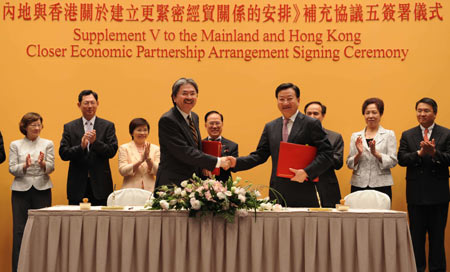
Financial
Secretary John Tsang and Vice-Minister of Commerce Jiang Zengwei sign Supplement
V to the Hong Kong-Mainland Closer Economic Partnership Arrangement

Andrew
Brandler, Hong Kong General Chamber of Commerce Chairman, welcomes the latest
CEPA initiatives
Good news for Hong Kong-based businesses in the services sector. The latest
phase of CEPA, the Closer Economic Partnership Arrangement between Hong Kong and
the Chinese mainland, will bring with it more opportunities.
The newest additions to CEPA, signed in July, brings to 40 the number of
services now covered by the free trade agreement, introduced in 2003. CEPA
created 36,000 jobs and attracted more than US$642 million of investment into
Hong Kong in its first three years. CEPA gives favorable trading and investment
treatment to a range of Hong Kong-incorporated manufacturers and services
through tariff exemptions and greater mainland access.
Overseas companies not based in Hong Kong can also take advantage of CEPA by
outsourcing to, or partnering with, CEPA-qualified manufacturers or service
providers in Hong Kong.
The latest phase, Supplement V, covers sectors such as tourism, accounting,
medical and dental services, education, construction and related engineering.
Two new sectors have been added: services related to mining, for oil and gas
exploration; and associated scientific and technical consulting services for the
prospecting and surveying of iron, manganese and copper in the mainland.
Supplement V also introduces a mechanism for increased cooperation on branding,
trademarks and e-commerce.
The new phase puts special focus on strengthening economic and trade cooperation
between Hong Kong and the southern mainland province of Guangdong, making it
easier for Hong Kong services providers to open businesses in the province.
Among the new CEPA commitments, 25 will be initiated as pilot projects in
Guangdong, a testing ground for the rest of the mainland.
Tangible benefits - Industry bodies have welcomed the latest signing. Hong Kong
General Chamber of Commerce (HKGCC) Chairman Andrew Brandler said the agreement
would bring tangible benefits to many Hong Kong companies and professionals as
they expand their operations in the mainland. It would also foster growth in
services, he said.
"For example, under the framework of Trade and Investment Facilitation,
both parties will promote cooperation in electronic commerce. Under Trademark,
they will set up a working team to encourage communication and cooperation in
trademark registration, management and protection," said Mr Brandler.
"In addition, Brand Cooperation between Hong Kong and the mainland is a new
sector under CEPA Trade and Investment Facilitation. The chamber has been
calling for these measures to be added to CEPA, so we are glad to see they have
been included in the latest supplement."
HKGCC Chief Executive Officer Alex Fong said the services sectors covered were
relevant to business needs. Commenting on a CEPA working mission that the
chamber organized to Guangdong last year, Mr Fong said the cases observed there
"helped to generate proposals for our CEPA wish list." Mr Fong was
also pleased to see that the newly signed supplement contains 25 liberalization
provisions between Guangdong and Hong Kong. "These should allow more Hong
Kong enterprises to operate businesses in the province. At the same time,
implementation of CEPA will be improved, which will help Hong Kong companies
make use of their competitive edge there."
Faster and easier - The Hong Kong Institute of Certified Public Accountants said
the new agreement would bring Hong Kong accountants more opportunities to
practice in China.
"For the accounting profession, it means that Hong Kong certified public
accountants (CPAs) need only pass the tax and law papers of the Chinese
Institute of Certified Public Accountants' exam to become CICPA members.
Mainland CPAs now only need to pass the taxation module and the final exam of
the Hong Kong Institute of CPAs qualification program to become Hong Kong
Institute of CPAs members," said Winnie CW Cheung, Chief Executive and
Registrar of the Hong Kong Institute of CPAs.
"These exemptions make it faster and easier for accountants to qualify, or
become licensed, in each market. And it's going to bring the two professions
another step closer to full mutual recognition."
Chairman of the Federation of Hong Kong Industries Clement Chen said the
agreement on trademark cooperation could encourage more Hong Kong companies to
develop new products and build their own brands.
"The cooperation mechanism for intellectual property protection and
branding will help encourage Hong Kong enterprises to invest in developing new
products and branding. This will assist them in targeting the newly emerged
middle class consumer market in the mainland," Mr Chen said. "The
distribution sector will benefit from the liberalization measures of the new
CEPA package. By allowing Hong Kong enterprises to operate on a wholly-owned
basis in China, it will be easier for them to open up chain stores in the
targeted cities, and to gradually set foot in the massive mainland domestic
market."
CEPA Supplement V comes into effect 1 January 2009 http://www.tid.gov.hk/english/cepa/
October
4, 2007
New Rule
Exempts Use By Dates From Four Types of Food
The Administrative Provisions on Food Labeling recently promulgated by the
General Administration of Quality Supervision, Inspection and Quarantine will
come into force on 1 September 2008. Under the new rule, use by dates will not
be required for four types of food with an ethanol content of 10% or over.
The new provisions govern the content and format of labels for food products and
include a number of additional requirements, such as place of manufacture, name
of repacker, warning message and minimum units for sale. Chinese explanations
must be given if the food has been clinically proven to be harmful to special
groups, has been treated with ionizing radiation or energy, is genetically
modified (GM) or contains legal GM raw materials, and is required by law,
regulations and national standards to show other explanations in Chinese. Food
that uses words like "nourishing" and "strengthening" in
their name or explanation must indicate the vitamin content and calories in its
labeling.
The new rule requires that food labels clearly indicate the date of production
and use by date. If the use by date has to do with storage, the special storage
conditions should also be indicated. Alcoholic beverages, edible vinegar, edible
salt and sugar in solid form that have an ethanol content of 10% or over, are
exempted from use by dates. The dates should be indicated in a manner that
complies with national standards or in the "year/month/date" format.
Seven types of content are prohibited from use on food labels, including
expressed or implied claims that the product may be used for the prevention or
treatment of diseases; expressed or implied claims that the product has health
care functions when it is not a health care product; fraudulent or misleading
ways of describing or introducing a type of food; and additional product notes
that cannot be justified. Quality inspection departments will order violators to
make rectification before a stipulated date. Those who fail to make
rectifications after the due date will be fined up to Rmb10,000. Those who
violate laws and regulations will be dealt with accordingly.
Aug 9,
2007
China spends $1b improving food, drug safety
China will spend more than $1 billion improving food and drug safety by 2010 and
the regulator will be given stronger oversight powers, an official said on
Wednesday.
State Food and Drug Administration spokeswoman Yan Jiangying said the government
had earmarked 8.8 billion yuan (US$1.16 billion) for food and drug safety over
the current Five Year Plan, which runs to 2010.
Part of this would be spent on a large, new laboratory, she said, adding this
was the first time the spending figure had been made public. Yan did not provide
a comparison for previous years.
"Once the Five Year Plan has been completed, the abilities and the base of
the regulator will be substantially raised," Yan said. "There will be
an enormous improvement in the system for guaranteeing food and drug safety for
the public."
New rules would give the watchdog the power to seal factories and seize whatever
materials they need when probing sub-standard goods, she added.
Yan said her department would also take the safety message nationwide, starting
out in the enormous countryside, home to 60 percent of the 1.3 billion
population.
"We will focus on rural food safety," Yan said.
A deputy agriculture minister admitted recently that the backward state of
Chinese farming was a major obstacle to raising food safety.
State media said on Wednesday, the beginning of the one-year year countdown to
the Beijing Olympics, the government would launch a campaign to crack down on
the use of highly potent and poisonous pesticides which are banned but still in
use.
Five pesticides were banned earlier this year, and the Agriculture Ministry was
compiling a blacklist of companies still making them. As part of the
government's food safety strategy, it will educate farmers how to properly use
pesticides.
Aug 8,
2007
China New Health Food Policy Soon to Come Out
The State Administration of Industry and Commerce is currently drawing up a new
set of standards for the examination of health food advertisements for
promulgation in the second half of the year. Over 40 industry standards are also
expected to come out before the end of the year.
The Measures on the Administration of Health Food Registration have been in
force for two years since their promulgation on 1 July 2005. During these two
years, the measures have been amended from time to time and the industry's entry
threshold has been raised. The Standards for the Examination of Health Food
Advertisements being drawn up will subject health food advertisements to strict
examination. Exaggerated advertisements will be banned while brand
advertisements and public service advertisements will be encouraged.
The Regulations Governing the Naming of Health Food (Trial Implementation),
promulgated on 14 June this year as a supplement to the Measures on the
Administration of Health Food Registration, require that health food cannot be
named after physical functions. Under this new regulation, the majority of
health products need to change their names. The industry sees this as the
beginning of the government's firm grip on the health food market.
As a matter of fact, the Measures on the Administration of Health Food
Registration set higher market entry thresholds for the health food industry.
These measures clearly point out that health food refers to "food that is
good for a particular group of people with the function of improving physical
condition, but is not meant for curing diseases and does not cause any acute,
sub-acute or chronic harm to the human body." They also set higher
technical requirements for the registration of health food.
As a result of the raising of entry thresholds, the percentage of health food
passing examination dropped last year. In 2006, China approved 1,231 health food
items and withheld approval for 182 items. The failure rate was 12.7%, an
increase of 53% over the previous year.
(Information Source & Credit: Hong Kong Trade
Development Council)

|
![]()
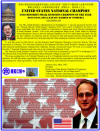 USA Small Business Administration (SBA)
Selected Johnson Choi/HKCHcc
2008 United States
National Champion
USA Small Business Administration (SBA)
Selected Johnson Choi/HKCHcc
2008 United States
National Champion![]()
![]() and follow us
on
and follow us
on
![]()


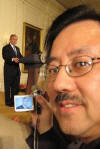
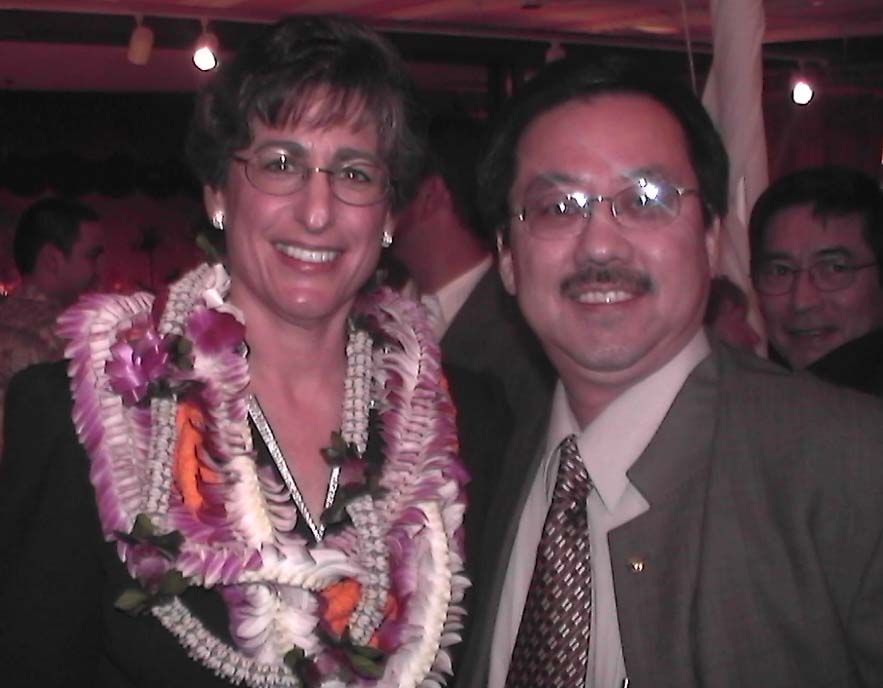


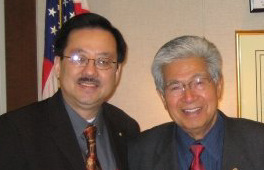


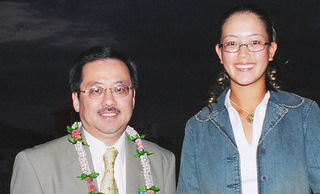
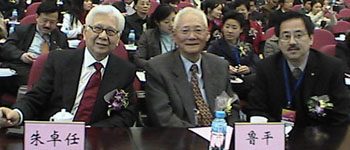














 Download Skype - FREE
Voice Over IP
Download Skype - FREE
Voice Over IP


